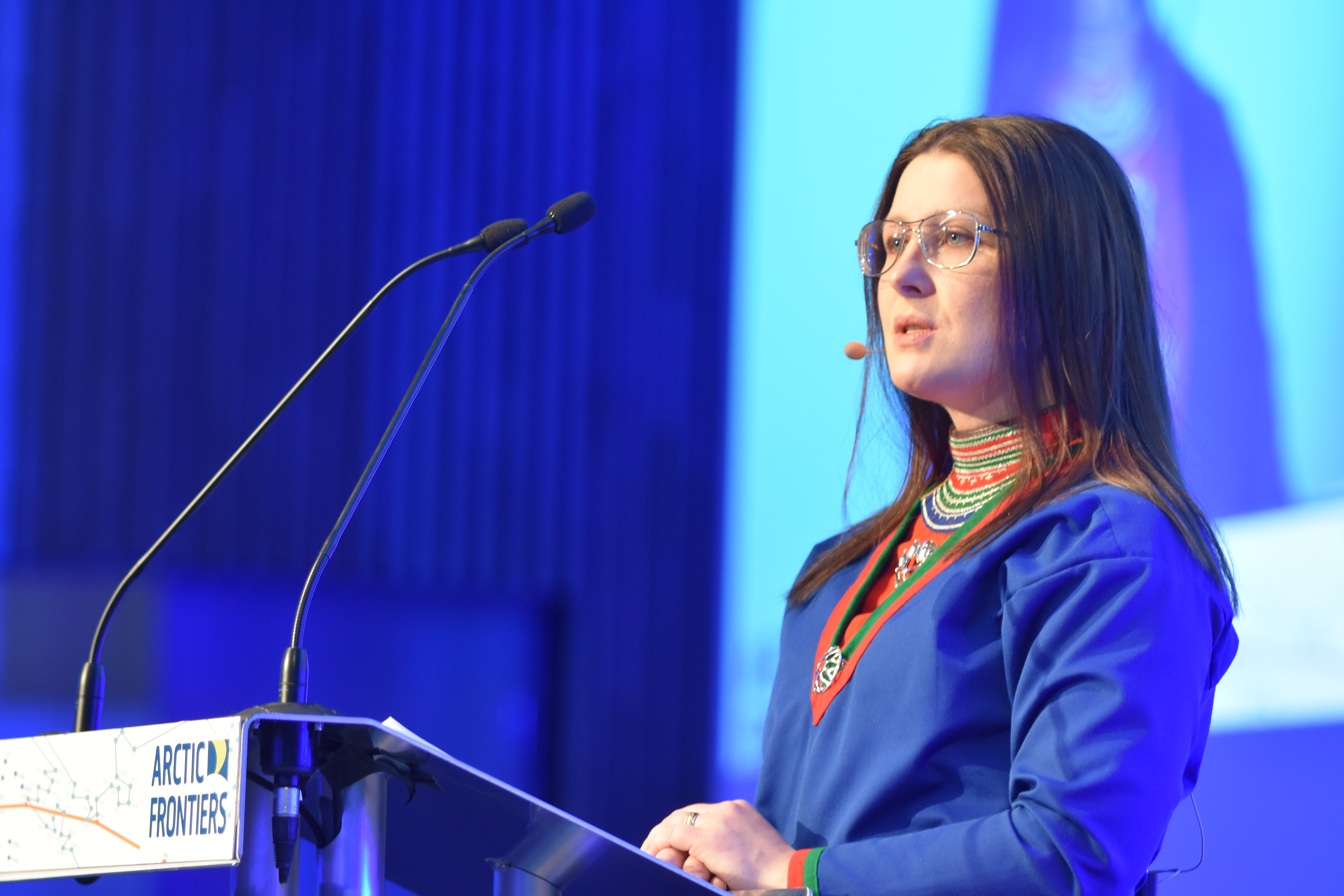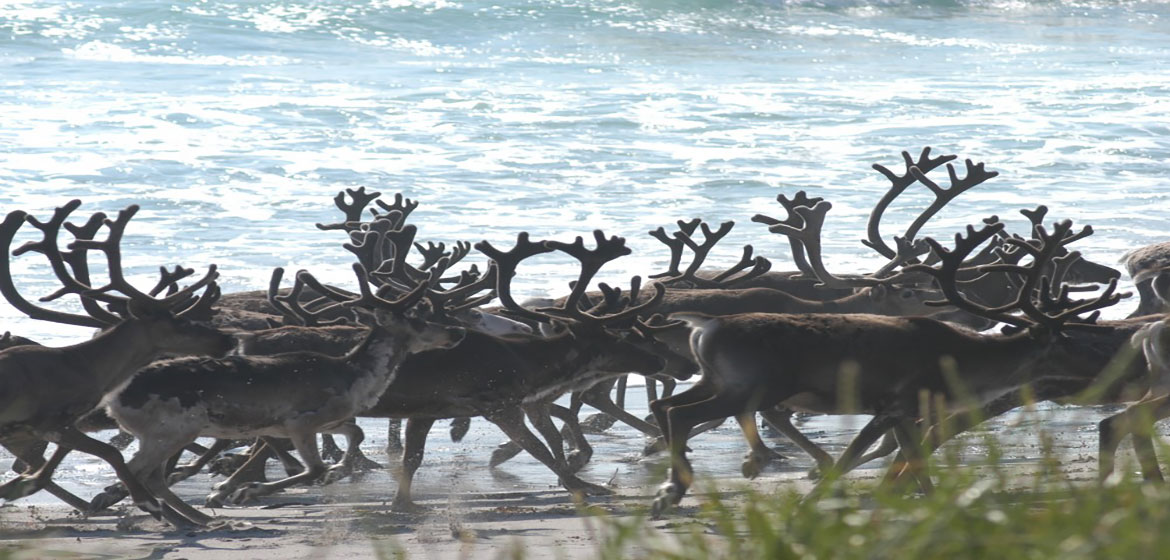A railway will affect the income and existence of the reindeer herding communities in the entire area from Rovaniemi in Finland to Kirkenes in Norway.
By Thomas Nilsen
«I can clearly state that there is no way for a railway from Rovaniemi to Kirkenes to be built without harming Sámi culture, traditional Sámi reindeer herding and fishing,» says President of the Saami Council, Åsa Larsson Blind, to the Barents Observer.
The Saami Council is a non-governmental organization promoting Sámi rights and interests. The council has Sámi member groups in Finland, Norway, Russia and Sweden.
In a statement, the council says no matter what route options are chosen, either on the eastern or western side of Lake Inari, such railway would cut trough important reindeer pastures and migration patterns.
«A failure to fulfill the rights of the Sámi to participate in the decision-making process of an industrial project of such dimensions is, in our view, a clear breach of international law,» the statement reads. It continues: «The process of the Arctic railway project will deny the Sámi people of fundamental rights and encroach both upon land rights and culture as well as language as a whole.»
Åsa Larsson Blind says the reindeer herding districts working in the area of the planned route on both the Finnish and Norwegian side of the border clearly oppose the plans.
«On the basis of their position, I do not see that the railway could be built,» Larsson Blind says.
The Saami Council President argues that international law gives the Sámi people the right to consultation and to consultations conducted in good faith in order to fulfill the right to free, prior and informed consent.
«This means that without Sámi right holders consent, the railway can not be built.»
With the aim of linking European and Asian trade routes via the Arctic Ocean, the Finnish and Norwegian Ministries of Transport have decided that a railway route from Rovaniemi to Kirkenes . A bilateral task force group is now working on a study.
Visiting Kirkenes earlier this year, Finland’s Minister of Transport, Anne Berner, said such railway would be a unique connection between the Arctic Ocean and Central Europe. «From the Norwegian Arctic coast - via Finland -and all the way to Berlin.»
«This is a vision which we are strongly committed to and that we do want to explore,» .

Åsa Larsson Blind is President of the Saami Council. Photo: Thomas Nilsen
Åsa Larsson Blind believes an Arctic railway could be a door opener for other industries posing additional troubles for reindeer herders and other natural-based industries core to Sámi culture.
«Based on our experience from other parts of Sápmi, we know that when large encroachments like this railroad are established there are likely more industrial activities to come. Accessibility is crucial for large scale industrial activities, and plans of a large railway like this is likely to attract attention from the mining industry and others.»
The Saami Council statement, made after a dialogue meeting in Inari last week with the reindeer herding districts, says preservation of reindeer husbandry, traditional land use and traditional Sámi land is the foundation for the survival of Sámi language and culture.
«The Arctic Railway will inflict major encroachments on and fragmentation of large and important Sámi reindeer pastures and nature areas.»
If built, the railway from Rovaniemi to Kirkenes will be about 500 kilometers, of which the main part will be on the Finnish side of the border. If a route east of Lake Inari is chosen, the railway will have to cross by the Øvre Pasvik National Park, a protected taiga forest area international conservation groups because of its biodiversity in times of climate changes.
The Saami Council requests the Ministers to carry out consultations with relevant Sámi rights holders and The Sámi Parliaments of Finland and Norway in order to ensure that the Sámi rights and needs are protected at an early stage before decisions are to be made. It is important that the responsible authorities carry out consultations in good faith in order to fulfil the rights of the Sami to free, prior, and informed consent.
Åsa Larsson Blind does not think a railway will bring good for tourism in the north.
«For those beliving that this railway would be positive for the tourism industry, they should think once or twice about the great inpacts this Railway would inflict on the nature and environment,» she says.
Source:
Related to SDG 10: Reduced inequalities, SDG 15: Life on land and SDG 16: Peace, justice and strong institutions



